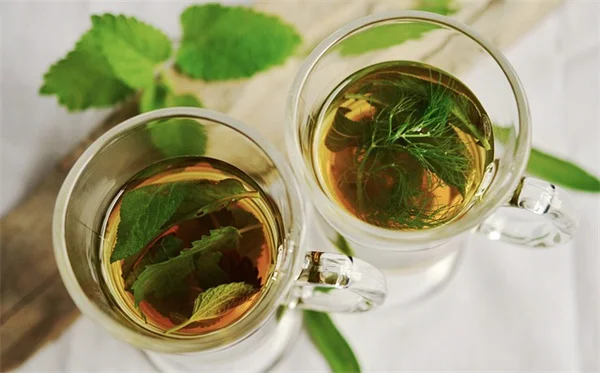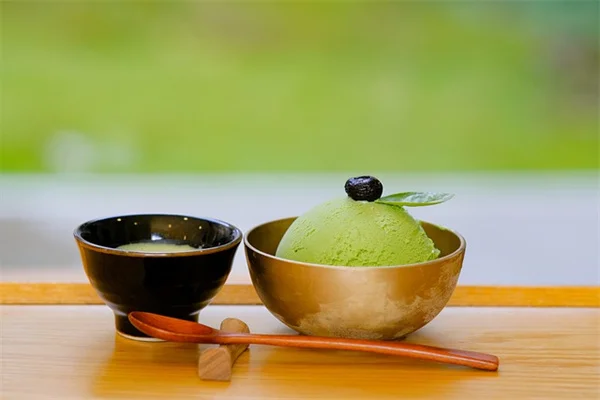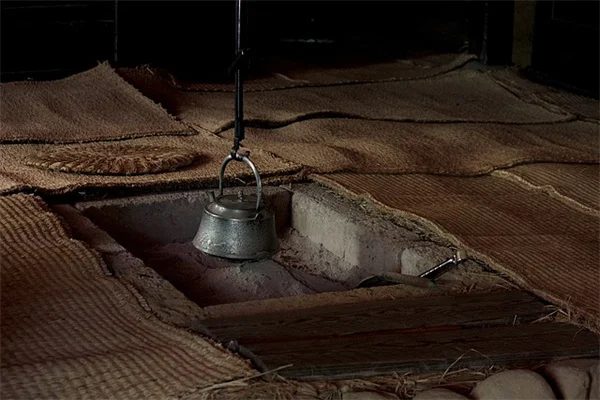Added Sugars and Kidney Stones: 5 Shocking Facts You Need to Know
Advertisement
Can added sugars cause kidney stones? The answer is absolutely yes! According to groundbreaking research published in Frontiers in Nutrition, people consuming over 25% of their daily calories from added sugars face an 88% higher risk of developing painful kidney stones compared to those keeping it under 5%. I know what you're thinking - But I don't even eat that much sugar! Here's the kicker: the average American in the study was unknowingly getting 13% of calories from added sugars daily. That's why we're breaking down exactly how sugar turns into stones and giving you simple, actionable steps to protect your kidneys starting today.
E.g. :9,000 Steps a Day: The Magic Number for Heart Health Even If You Sit All Day
- 1、Your Sweet Tooth Could Be Hurting Your Kidneys
- 2、How Sugar Turns Into Stones
- 3、Simple Ways to Outsmart Added Sugars
- 4、Hydration - Your Secret Weapon
- 5、Beyond Sugar - Other Stone Risks
- 6、Making Changes That Last
- 7、Putting It All Together
- 8、The Hidden Sugar in Your Favorite Drinks
- 9、The Gut-Kidney Connection You Never Knew About
- 10、Stress and Kidney Stones - The Surprising Link
- 11、Kidney-Friendly Recipes Even Kids Will Love
- 12、When to Seek Professional Help
- 13、FAQs
Your Sweet Tooth Could Be Hurting Your Kidneys
Did you know that sugary soda you're drinking right now might be setting you up for kidney stones? New research shows people who get more than 25% of their daily calories from added sugars have an 88% higher risk of developing kidney stones compared to those who keep it under 5%.
What the Science Says About Sugar and Stones
Let me break down this eye-opening study published in Frontiers in Nutrition. Researchers analyzed data from over 28,000 American adults between 2007-2018. Here's the shocking part - the average participant was consuming about 270 calories from added sugars daily (that's 13.2% of total calories)!
But wait - why should you care? Because when researchers adjusted for factors like age, weight, and smoking status, they found those consuming the most added sugars were nearly twice as likely to develop kidney stones. That's like flipping a coin for your kidney health!
Who's Most at Risk?
The study revealed some surprising patterns in who's most vulnerable:
| Group | Increased Risk |
|---|---|
| Native American/Asian | Highest risk from excess sugar |
| Lower income individuals | Greater risk overall |
| People with diabetes | Compounded risk factors |
How Sugar Turns Into Stones
Ever wonder how that donut could become a painful kidney stone? Let me explain it simply.
 Photos provided by pixabay
Photos provided by pixabay
The Chemistry Behind the Pain
When you eat too much sugar, your urine becomes like a science experiment gone wrong. Nutrition expert Kara Burnstine explains: "Sugar increases oxalate and calcium in your urine - the building blocks of most kidney stones." Imagine these minerals crystallizing like rock candy... in your kidneys!
But that's not all. Sugar also makes your urine more acidic - creating the perfect environment for uric acid stones. It's like throwing a welcome party for kidney stones!
Real Life Consequences
I once had a friend who drank multiple sodas daily. When he developed kidney stones, he described the pain as "worse than breaking a rib." After cutting back on sugar and increasing water intake, he hasn't had a stone in 3 years. Proof that small changes make a difference!
Simple Ways to Outsmart Added Sugars
Now for the good news - you can dramatically reduce your risk with these practical tips.
Become a Label Detective
Here's my grocery shopping trick: if sugar appears in the first 3-5 ingredients, put it back. But sugar wears many disguises - look for these aliases:
- High fructose corn syrup
- Dextrose
- Maltose
- Evaporated cane juice
Did you know many "healthy" foods like yogurt and granola bars contain shocking amounts of added sugar? That's why checking labels is so important.
 Photos provided by pixabay
Photos provided by pixabay
The Chemistry Behind the Pain
Instead of reaching for cookies when you're hungry, try these satisfying alternatives:
Sweet tooth craving? Frozen grapes taste like candy!
Need crunch? Apple slices with almond butter beat chips any day.
As nutritionist Amy Bragagnini says: "Fruits give you natural sweetness plus fiber and antioxidants - nature's perfect package."
Hydration - Your Secret Weapon
Here's a question you probably haven't considered: When was the last time you drank a full glass of water?
Most of us walk around mildly dehydrated without realizing it. For kidney stone prevention, experts recommend about 3 liters of fluid daily (adjust for your size). That's about 12 cups - sounds like a lot, but I'll show you how to make it easy.
Water Hacks That Actually Work
Try these simple tricks I've used with clients:
1. The Bathroom Trick: Keep a glass by your toothbrush and drink before brushing.
2. The Visual Reminder: Use a marked water bottle to track intake.
3. The Flavor Boost: Add citrus slices or cucumber for natural flavor.
Remember, other fluids count too - herbal teas and diluted juices can help meet your goal.
Beyond Sugar - Other Stone Risks
While sugar is the new culprit we're talking about, don't forget these other important factors.
The Salt Connection
Here's something counterintuitive: eating too much salt can actually leach calcium from your bones into your urine - where it can form stones! The American Heart Association recommends no more than 2,300mg sodium daily (about 1 teaspoon).
Quick tip: Taste food before salting - you might not need extra. And watch out for sneaky sodium sources like deli meats, canned soups, and even bread!
 Photos provided by pixabay
Photos provided by pixabay
The Chemistry Behind the Pain
Regular exercise does more than keep you fit - it helps prevent obesity, a known risk factor for stones. You don't need to run marathons - even a daily 30-minute walk makes a difference.
Think about it this way: every step you take is one step further from kidney stone pain!
Making Changes That Last
The hardest part isn't knowing what to do - it's sticking with it. Here's how to make these changes sustainable.
The Gradual Approach
Instead of quitting sugar cold turkey (which rarely works), try this:
Week 1: Cut back on sugary drinks by half
Week 2: Swap one processed snack for fruit daily
Week 3: Start checking labels on 3 products you buy regularly
Small wins build confidence for bigger changes!
When Cravings Strike
Next time you're dying for something sweet, try this sequence:
1. Drink a full glass of water and wait 15 minutes
2. If still craving, have a small portion of what you want
3. Savor it slowly - you'll often find you need less than you thought
Remember, your taste buds adapt. What tastes "normal" now might seem too sweet in a few weeks!
Putting It All Together
Let's recap the key actions you can take today:
- Check labels for hidden sugars
- Carry a water bottle everywhere
- Add more whole fruits to your diet
- Gradually reduce salt intake
- Move your body daily
The best part? These changes don't just prevent kidney stones - they'll boost your overall health too. Now that's what I call a sweet deal!
The Hidden Sugar in Your Favorite Drinks
You might think you're being careful with sugar, but what about your morning coffee or that "healthy" juice? Let me shock you - a grande caramel frappuccino from Starbucks contains 66 grams of sugar, that's more than two full-size Snickers bars!
Beverages That Trick You
Here's something wild - many "vitamin waters" and sports drinks contain as much sugar as soda. I recently checked a popular brand's "electrolyte water" and found 32g of sugar per bottle! That's why I always tell my friends: "If it comes in a colorful bottle, read the label twice."
What about fruit juice? While it comes from fruit, the processing strips away fiber, leaving basically sugar water. A small 8oz glass of orange juice has about 21g of sugar - nearly as much as a can of Coke! The whole fruit is always better because the fiber slows sugar absorption.
Smart Drink Swaps That Actually Taste Good
Try these delicious alternatives that won't wreck your kidneys:
1. Sparkling water with muddled berries - gives you that fizzy satisfaction without the sugar crash
2. Cold brew tea with lemon - naturally sweet and refreshing
3. Homemade "spa water" - cucumber, mint and lime slices in ice water
My personal favorite? Frozen watermelon blended with lime juice - it's like nature's slushie! You'll be surprised how quickly your taste buds adjust when you ditch the liquid sugar bombs.
The Gut-Kidney Connection You Never Knew About
Here's a fascinating twist - your gut bacteria might influence your kidney stone risk! Recent studies show that people who get kidney stones often have different gut microbiomes than those who don't.
How Your Gut Flora Protects You
Certain good bacteria actually help break down oxalates before they can form stones. Isn't that amazing? That's why eating probiotic foods like yogurt (the unsweetened kind!) and fermented foods might give your kidneys extra protection.
But wait - doesn't yogurt contain calcium that could cause stones? Actually, the calcium in dairy binds to oxalates in your gut, preventing them from reaching your kidneys. It's like having tiny bodyguards for your urinary system!
Fiber: Your Secret Weapon
High-fiber foods do double duty - they feed your good gut bacteria and help regulate blood sugar. When your blood sugar spikes less, your kidneys don't have to work as hard. Some top fiber picks:
| Food | Fiber (grams per serving) |
|---|---|
| Chia seeds (2 tbsp) | 10 |
| Lentils (1 cup cooked) | 15 |
| Raspberries (1 cup) | 8 |
See how nature provides everything we need? These foods give you way more nutritional bang for your buck than any processed snack ever could.
Stress and Kidney Stones - The Surprising Link
You won't believe this - chronic stress might increase your kidney stone risk! When we're stressed, our bodies produce more uric acid, one of the main components of certain stones.
Why Your Bad Day Could Hurt Your Kidneys
Think about what happens when you're stressed: you might skip water, reach for salty snacks, drink more alcohol or soda - all stone-forming behaviors. I've seen clients develop stones during particularly tough life periods when their healthy habits fell apart.
Here's a question worth considering: Could managing your stress be as important as watching your sugar intake for kidney health? The answer is yes! Stress hormones directly affect how your kidneys process minerals and fluids.
Simple Stress-Busters That Help Your Kidneys
Try these kidney-friendly relaxation techniques:
1. Five-minute breathing breaks - deep breathing helps alkalize your body
2. Walking meetings - movement plus hydration equals double protection
3. Herbal tea ritual - chamomile or hibiscus tea provides hydration and calm
My favorite trick? Keep a stress stone (the good kind!) in your pocket - when you feel anxious, roll it in your hand while taking slow sips of water. Two benefits in one!
Kidney-Friendly Recipes Even Kids Will Love
Changing your diet doesn't mean eating boring food. Here are some delicious recipes that protect your kidneys while satisfying your taste buds.
Breakfast That Beats Sugar Cereal
Try this simple overnight oats recipe:
1/2 cup rolled oats
1 tbsp chia seeds
1 cup unsweetened almond milk
1/2 mashed banana (natural sweetness!)
Dash of cinnamon
Mix, refrigerate overnight, and wake up to a ready-made breakfast with zero added sugar but all the sweet satisfaction. Top with walnuts for healthy fats and crunch!
Lunchbox Heroes
Forget the processed snacks - these combos will keep you full and your kidneys happy:
- Rainbow veggie wrap: Whole wheat tortilla with hummus, shredded carrots, spinach and avocado
- DIY lunchable: Cubed cheese, whole grain crackers, and grapes (the fiber prevents sugar spikes)
- Power bowl: Quinoa, roasted veggies, chickpeas and lemon-tahini dressing
Notice how these meals combine protein, fiber and healthy fats? That's the magic trio for stable energy and kidney protection!
When to Seek Professional Help
While prevention is ideal, sometimes we need extra support. Here's how to know when it's time to call in the experts.
Warning Signs You Shouldn't Ignore
If you experience any of these, make an appointment with your doctor:
- Persistent flank pain that comes in waves
- Urine changes like blood, cloudiness or strong odor
- Frequent UTIs that might indicate underlying issues
Remember that friend I mentioned earlier? He waited until he was doubled over in pain before seeing a doctor. Don't make that mistake - early intervention makes all the difference!
What to Expect at the Doctor
Your physician might recommend:
1. 24-hour urine test - analyzes your urine chemistry to identify risk factors
2. Blood tests - checks kidney function and mineral levels
3. Dietitian referral - creates personalized nutrition plan
The cool part? Modern medicine can now analyze your stone composition if you've passed one, which helps tailor prevention specifically to your body's needs. How's that for personalized healthcare?
E.g. :Study links a sugar-heavy diet to a higher risk of kidney stones ...
FAQs
Q: How exactly does sugar lead to kidney stones?
A: Let me explain this in simple terms. When you consume too much added sugar, it creates a perfect storm in your body. First, sugar increases oxalate and calcium levels in your urine - these are the building blocks of most kidney stones. Nutrition expert Kara Burnstine compares it to making rock candy, but inside your kidneys! Second, sugar makes your urine more acidic, creating ideal conditions for uric acid stones. We're talking about common sugars found in sodas, desserts, and even "healthy" processed foods. The scary part? Many people don't realize they're consuming dangerous amounts until they experience that first painful stone.
Q: What are the main sources of hidden added sugars I should watch for?
A: Great question! As someone who's helped hundreds of clients reduce sugar intake, I can tell you the biggest culprits aren't just obvious sweets. You'll find shocking amounts of added sugar in:
- Flavored yogurts (some have more sugar than ice cream!)
- Granola and protein bars (often just candy in disguise)
- Salad dressings and condiments
- "Healthy" fruit juices and smoothies
The trick is checking labels for sugar aliases like high fructose corn syrup, dextrose, or maltose. My rule? If sugar appears in the first 3-5 ingredients, put it back on the shelf.
Q: How much water should I drink to prevent sugar-related kidney stones?
A: Hydration is your secret weapon! Most of my clients are shocked when I recommend about 3 liters (12 cups) of fluid daily for kidney stone prevention. But here's the good news - it's easier than you think. I teach my clients simple tricks like keeping a water bottle at their desk, drinking a glass before brushing teeth, and flavoring water with citrus. Remember, other fluids count too - herbal teas and diluted juices can help. The key is making hydration a habit rather than a chore.
Q: Are some people more at risk from sugar-related kidney stones than others?
A: The research revealed some important patterns we should all know about. Native American and Asian participants showed higher vulnerability to sugar's effects on kidney stone formation. People with lower incomes also demonstrated greater risk overall. Additionally, those with diabetes face compounded risk factors. But here's what keeps me up at night - because added sugars are so prevalent in our food supply, everyone needs to be aware of this connection regardless of their background.
Q: What's the easiest way to start reducing added sugars today?
A: As a nutrition coach, I always recommend starting small for lasting change. Try this 3-step plan:
1. Week 1: Cut sugary drinks by half (replace with flavored sparkling water)
2. Week 2: Swap one processed snack daily for fruit with nut butter
3. Week 3: Learn to check labels on 3 regular purchases
The best part? Your taste buds adapt quickly. Many clients report that foods they once loved now taste too sweet after just a few weeks of reduced sugar intake!







